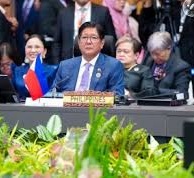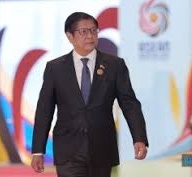KUALA LUMPUR, Malaysia — Following the ceremonial opening of the 47th Association of Southeast Asian Nations (ASEAN) Summit and Related Summits, Philippine President Ferdinand Marcos Jr. plunged immediately into a series of high-stakes bilateral meetings on Sunday. The engagements, held on the sidelines of the main summit in Kuala Lumpur, Malaysia, underscored the Philippines’ commitment to strengthening both regional solidarity and vital international partnerships.

In photos released by the Presidential Communications Office (PCO), President Marcos Jr. was seen in face-to-face discussions with four key counterparts: Cambodian Prime Minister Hun Manet, Canadian Prime Minister Mark Carney, newly elected Japanese Prime Minister Sanae Takaichi, and Thai Prime Minister Anutin Charnvirakul.
II. Key Bilateral Outcomes: Regional Security and Economic Boosts
A. Philippines and Cambodia: Advocating for Peace
In his discussion with Cambodian Prime Minister Hun Manet, President Marcos Jr. focused on regional stability. Marcos reiterated the Philippines’ steadfast support for the peaceful resolution of the Thai-Cambodian conflict. Both leaders emphasized the necessity of achieving a resolution through dialogue and strict adherence to international law, underscoring ASEAN’s commitment to diplomacy over confrontation.
B. Philippines and Thailand: Deepening Economic and Agricultural Links
The meeting with Thai Prime Minister Anutin Charnvirakul served to reaffirm the long-standing friendly relations between the two nations. President Marcos Jr. conveyed his condolences to the Thai people on the passing of Queen Sirikit, a gesture reinforcing personal and institutional respect.
Looking forward, the two leaders committed to working closely together to boost tourism, trade, and investments, specifically emphasizing increased engagements with the private sector to drive economic growth. A core focus of their discussion was strengthening agricultural exchanges, an area of mutual importance given both countries’ dependence on the sector.
C. Philippines and Canada: Shared Values on the Global Stage
The meeting between President Marcos Jr. and Canadian Prime Minister Mark Carney highlighted the robust relationship between Manila and Ottawa. They agreed to further foster strong people-to-people exchanges, acknowledging the significant Filipino diaspora community in Canada.
Marcos took the opportunity to thank the Canadian government for its steadfast support for the Philippines, particularly regarding international maritime law. He specifically cited shared values on the rules-based international order, emphasizing the importance of the United Nations Convention on the Law of the Sea (UNCLOS)—a clear nod to ongoing security challenges in the West Philippine Sea.
D. Philippines and Japan: Welcoming a New Partnership
Marcos also held initial discussions with Japan’s newly elected Prime Minister, Sanae Takaichi. While specific details of their conversation were limited in the initial report, the meeting symbolizes the continuation of the crucial strategic and economic partnership between Manila and Tokyo, which is key to regional stability and infrastructure development.
III. ASEAN’s Historic Milestone and Future Hosting

The series of bilateral meetings followed a significant regional event: the formal signing of the declaration granting Timor-Leste full membership, making it the 11th member state of the regional bloc. President Marcos Jr. lauded this moment as a “historic milestone,” reinforcing the collective spirit and expansion of the ASEAN family.
President Marcos Jr. arrived in Malaysia’s capital on Saturday with a clear mandate to reaffirm the Philippines’ commitment to strengthening regional cooperation. This diplomatic engagement sets the stage for the Philippines’ own major role next year, as the Marcos administration prepares to host the next ASEAN Summit in 2026 across the key cities of Cebu and Manila.
These meetings demonstrate the Philippines’ active role in shaping the regional agenda, balancing security and economic interests, and leveraging multilateral forums to advance its national priorities.





